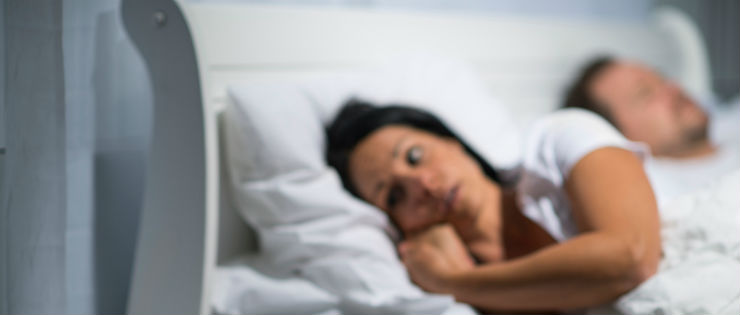
Drifting off to sleep should be one of life’s joys. For some people, they can fall asleep the minute their head hits the pillow while for others it’s a nightly struggle. A lack of sleep can lead to daytime fatigue, poor concentration and irritability. Try some techniques that may reduce the time and anxiety involved in getting some shut-eye.
There may be a number of reasons why you can’t fall asleep quickly but one of the most common is stress. If your mind hasn’t switched off from a busy day and you are thinking about tomorrow, you will probably find it more difficult to sleep.
1. Screens
Looking at the bright screen of your laptop, TV or iPad is not conducive to sleep. Try to turn off all electronics an hour before bedtime and read a book and try to relax before going to bed.
2. Meals
If possible, eat a few hours before going to bed so that you aren’t too full or too hungry. If you have just finished a heavy meal before bed, you can be uncomfortable and your body is busy digesting your food to allow you to fall asleep. Some foods can cause congestion, gastrointestinal upsets and gas, so experiment with different evening meals to see if one type is better than another.
3. Exercise
Daily exercise is important for sleep so try to get a minimum 30 minutes each day. If you prefer to exercise later in the day, try to finish an hour or two before bedtime so your body has time to return to a resting state before trying to sleep.
4. Relaxation
Work out what activities make you feel relaxed. Everyone is different and what is relaxing for one person isn’t for another. Try taking a warm bath, reading a book, doing some yoga or meditation and having a hot drink. By trying a variety of activities, you will hopefully find one that suits you.
5. Noisy Partner
Of course, a snoring partner can make sleep difficult. If nudging them to roll over doesn’t work, encourage them to see the GP to try and find a solution for their snoring.
6. Write a List
We often think about everything we need to do the next day when we go to bed, but it’s a bad habit. Try writing it all down on a list and the time you intend to tackle the task the next day then put it out of your mind. Remind yourself there is nothing you can do in bed to fix a problem, so put your worries aside.
7. Sleep & Rise at the Same Time
If you aren’t a shift worker, then try to go to bed at roughly the same time each night. If you have two or three late nights during the week and early nights the rest of the week it becomes hard for your body to get into a good sleep rhythm.
8. Bedroom
Make sure your room isn’t too hot or cold, the ideal temperature for comfortable sleeping is 21 degrees Celsius. In winter use a heater or hot water bottle to warm the room and bed. In summer use a fan or air-conditioner to try cooling your room. Some people need fresh air to sleep so open the window. Try to reduce the light entering your bedroom by getting thicker curtains. Remove the TV or phones in your bedroom or anything else that makes noise. Turn your alarm clock towards the wall so you can’t see how late it is getting, causing you more angst about not getting to sleep. A quiet, dark room is most conducive to falling asleep.
9. Avoid Caffeine, Alcohol & Tobacco
All of these vices can cause an increased heart rate. Try to avoid drinking or smoking late in the evening when you need your body to be in a relaxed state. Instead, try sipping Chamomile tea because it can relieve anxiety and induce relaxation.
10. Homeopathy
People around the world believe homeopathy helps them fall asleep. There is a range of remedies from oils to pills that treat the different symptoms of sleeplessness. You may need to try a few to find the one that best suits your situation.
If you have tried a few options to encourage sleep and they aren’t helping, make an appointment to see your doctor. Not being able to fall asleep or stay asleep is frustrating and, if left to continue long-term, can impact your quality of life.
HIF Health Lifestyle Cover
Check out HIF’s Healthy Lifestyle Cover , allowing you to claim a benefit on weight loss programs, gym memberships, yoga, pilates and much more.